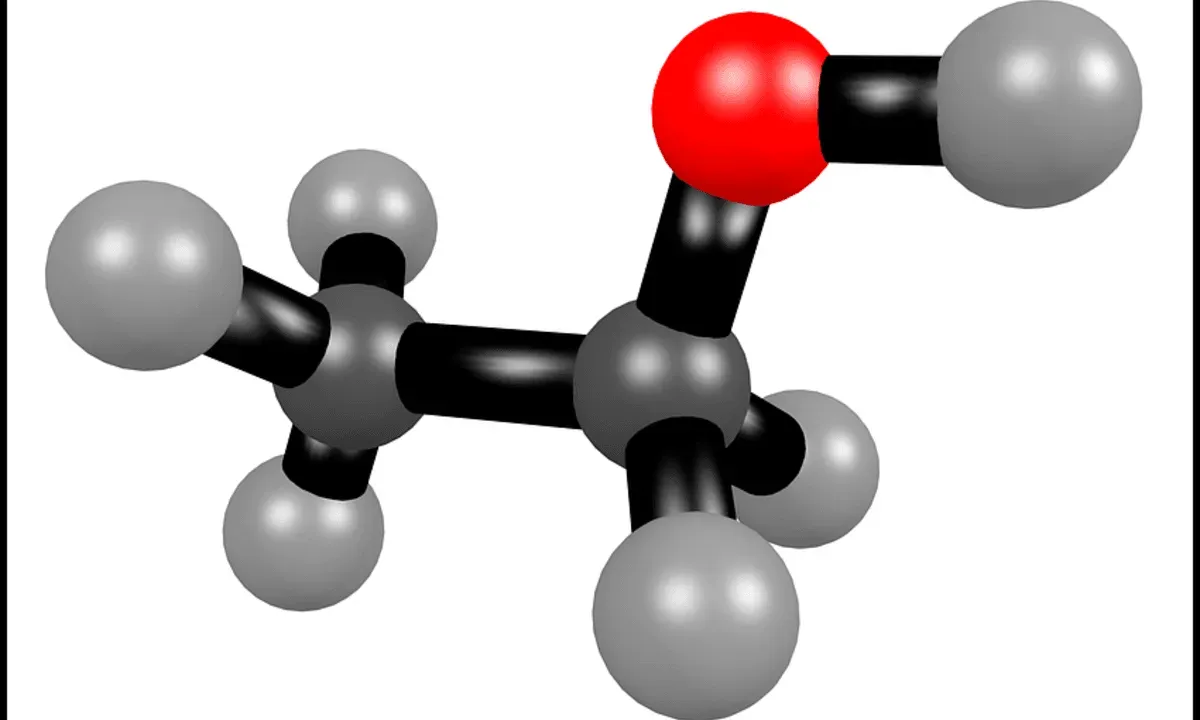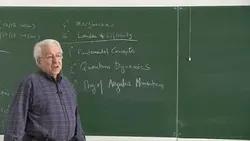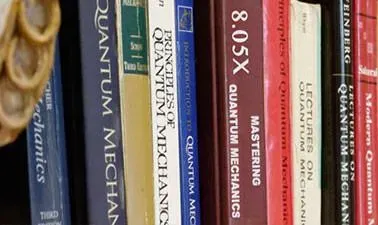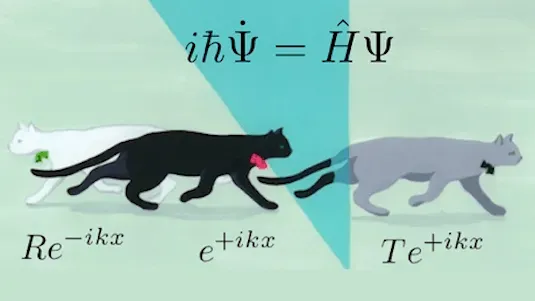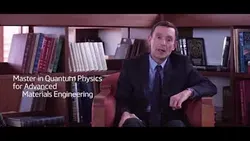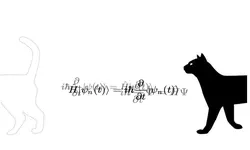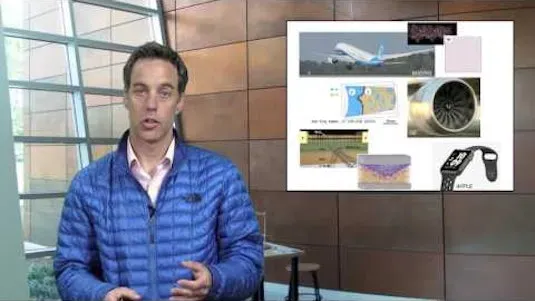Free Online Quantum Mechanics Courses and
Certifications 2026
Quantum Mechanics is a branch of physics that studies the behavior of matter and energy at the atomic and subatomic level. It is a fascinating field of study, and is suitable for those interested in physics, mathematics, and engineering. Related courses include quantum computing, quantum optics, and quantum information theory. People who study quantum mechanics are often physicists, mathematicians, and engineers.
Popular Courses
This course provides an introduction to quantum mechanics for mechanical and aerospace engineering students. It covers the Schrodinger wave equation, simple solutions, atomic and molecular structure, and modern numerical solution methods.
Learn More
In this course, a quantum physicist dissects the physics of Ant-Man. He explains the concept of atomic distances, how to crack a safe, and the use of remote-controlled ants. He also discusses the quantum realm and how shrinking between atoms works. Finally, he provides a conclusion to his analysis of the movie's physics.
Learn More
This advanced course provides an overview of the rapidly growing field of Topological Quantum Matter. It covers both theoretical and experimental aspects, with a focus on the physical understanding of the material rather than technical details. The course is divided into topics such as topological insulators, fractional quantum Hall effect, and Majorana fermions. It provides a comprehensive introduction to the field for students and researchers.
Learn More
Discover the fundamentals of Quantum Optics 1 : Single Photons
Learn More
This course provides an introduction to the quantum states and dynamics of photons. It covers topics such as squeezed states of light, teleportation, non-classical states of light, single photons, and metrology with light. Students will gain an understanding of the quantum description of light and its applications.
Learn More
This course provides an introduction to the use of quantum mechanics in science and engineering. It covers topics such as spin, identical particles, the quantum mechanics of light, and the basics of quantum information. Students will gain an understanding of the fundamentals of quantum mechanics and its applications in modern technology.
Learn More
This course, taught by Prof. Dr. Namık Kemal Pak, covers the fundamentals of Quantum Mechanics. During the first week, topics such as wave-particle duality, the Schrödinger equation, and the Heisenberg uncertainty principle were discussed. In the second week, lectures focused on the solutions of the Schrödinger equation, the hydrogen atom, and angular momentum.
Learn More
This course provides a comprehensive overview of quantum mechanics and its mathematical foundations. It equips students with the necessary skills to conduct research in quantum mechanics and to comprehend the latest advancements in the field.
Learn More
This course introduces the fundamentals of quantum optics, exploring the quantum mechanical description of light and its applications. Topics include Maxwell's equations, the photon, and the implications of quantum mechanics for light.
Learn More
This 9 week course provides an introduction to quantum mechanics for college-level students with a background in physical science or engineering. It covers topics such as wave functions, operators, and the Schrödinger equation, and is designed to equip students with the knowledge and skills to apply quantum mechanics in their own fields.
Learn More
This course explores the challenge of understanding quantum reality, beginning with a classical background and then delving into wave-particle duality with electrons and light. It further examines measurement disturbance and various interpretations and applications. Ultimately, it seeks to provide a better understanding of the quantum world.
Learn More
This course provides an in-depth exploration of quantum physics, covering topics from the basics to the cutting edge of research. Students will gain a comprehensive understanding of the subject through interactive exercises.
Learn More
This course is designed for physics majors and provides an in-depth look into modern condensed matter physics. Students will explore topics such as Bose-condensates and superconductivity, as well as gain an understanding of quantum mechanics and its applications in engineering.
Learn More
In Quantum Optics 2, learners will explore the more complex phenomena of two photons and beyond, including applications to quantum technologies. This course will build on the knowledge gained in Quantum Optics 1.
Learn More
This course provides an introduction to quantum mechanics and atomic physics, exploring the fundamental principles of modern physics. Students will gain an understanding of the structure of atoms and the behavior of particles.
Learn More
This five-unit course provides a unified framework for understanding the essential physics that govern materials at atomic scales. Students will learn how to relate these processes to the macroscopic world, starting with the basics of quantum mechanics and progressing to more advanced topics such as electronic structure and thermodynamics. Through lectures, simulations, and problem sets, students will gain a comprehensive understanding of the properties of atoms and materials.
Learn More
Quantum Mechanics Courses
Career Trends
Career Prospects
| Average Salary | Position Overview
|
| Engineering Technician | $54,460 per year
| An engineering technician's main responsibility is to support engineers in the creation of novel products or solutions. This may entail conducting tests, documenting data, procuring materials, or repairing components. It is important to note that, in contrast to engineering technicians, engineers have completed a bachelor's degree program or higher. |
| Test Engineer | $133,058 per year | Test engineers are responsible for conducting comprehensive evaluations of materials, procedures, and mechanical or electrical systems to guarantee that customers receive functional, high-quality products. They perform tests on a range of components and features to detect and resolve technical problems. |
| Materials Engineer | $111,658 per year | Materials engineers specialize in working with various substances such as metals, ceramics, and plastics, with the goal of designing new and improved materials. Their duties include developing, refining, and evaluating materials that are utilized in manufacturing an array of products, ranging from computer chips and airplane wings to golf clubs and medical equipment. |
| Software Engineer | $146,511 per year |
|
Educational Paths
1. Bachelor's degree in Physics: A bachelor's degree in physics can provide a solid foundation for studying quantum mechanics. Courses in classical mechanics, electromagnetism, and quantum mechanics will be covered.
2. Master's degree in Physics: A master's degree in physics will provide a more advanced understanding of quantum mechanics. Courses in quantum field theory, statistical mechanics, and particle physics will be covered.
3. PhD in Physics: A PhD in physics is the highest level of education available for studying quantum mechanics. This degree involves conducting original research in quantum mechanics and related fields.
4. Online courses: There are many online courses available that cover the basics of quantum mechanics. These courses can be taken individually or as part of a certificate program.
Frequently Asked Questions and Answers
Q1: Where to find free quantum mechanics courses?
If you're looking for free quantum mechanics courses, you're in luck! There are a variety of online resources available, from MOOCs to online education providers such as Udemy, Coursera, Edx, Skillshare, Udacity, Bitdegree, Eduonix, QuickStart, YouTube and more. With these resources, you can find free quantum mechanics tutorials and courses to get free training and practical knowledge of quantum mechanics.
Q2: What are the basic rules of quantum mechanics?
The core principle of quantum mechanics is encapsulated in Schrödinger's wave equation, which characterizes the state of an individual particle through a single quantum wave. The amplitude of this wave at any given position signifies the likelihood of detecting the particle at that specific location.
Q3: What is an example of a quantum mechanics?
Illustrations of such applications encompass lasers, electron microscopes, magnetic resonance imaging (MRI) apparatus, and the constituent elements employed in computer hardware. The exploration of semiconductors played a pivotal role in the development of essential components like diodes and transistors, which have become indispensable in contemporary electronic systems, computers, and telecommunications devices.
Q4: What Quantum Mechanics courses can I find on OeClass?
On this page, we have collected free or certified 97 Quantum Mechanics online courses from various platforms. The list currently only displays up to 50 items. If you have other needs, please contact us.
